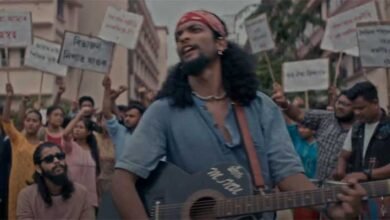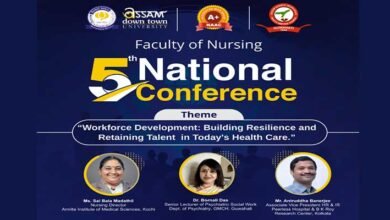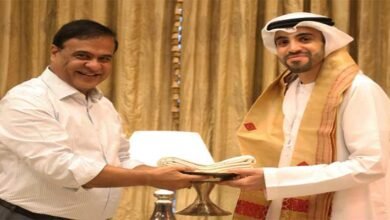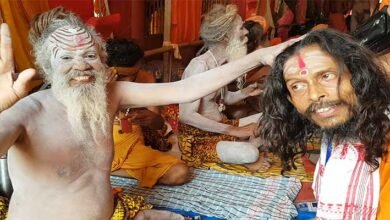
An 11-hour North East bandh, called NESO, AASU to protest against the controversial Citizenship (Amendment) Bill began amid tight security at 5am.
Guwahati
An 11-hour North East bandh, called by a Northeast Student’s Organisation ( NESO ), All Assam Student’s Union ( AASU ) and other 30 indigenous organisations on Tuesday, to protest against the controversial Citizenship (Amendment) Bill began amid tight security at 5am.
Tyres were burnt on roads at various places in Assam to prevent movement of vehicles. Vehicles were damaged in Guwahati, Tinsukia and Dibrugarh districts, police said.
Railway tracks were blocked briefly in Guwahati and Dibrugarh district but movement of trains, including that of the Delhi-bound Rajdhani Express, resumed after the GRP removed protestors from the tracks, railway sources said.
Train and flight schedules remained unaffected.
Shops, markets, financial institutions kept their shutters down, educational institutions, private offices remained closed and private vehicles, including long-distance buses, kept off roads in the Brahmaputra valley, police and official sources said.
Attendance in government offices was thin as the employees had difficulty in reaching their workplace in the absence of adequate public transport, the sources said.
Watch Video
The bandh evoked response in the Bengali-majority Barak valley also where Prime Minister Narendra Modi on January 4, had announced that the Citizenship Amendment Bill, 2016 will be passed as soon as possible in the Parliament as a penance for past injustices.
The bill seeks to amend the Citizenship Act 1955 to grant Indian citizenship to people from minority communities — Hindus, Sikhs, Buddhists, Jains, Parsis and Christians — from Afghanistan, Bangladesh and Pakistan after six years of residence in India instead of 12 even if they do not possess any proper document.
The AGP and other groups in Assam have said the provisions of the bill will nullify the 1985 Assam Accord, which provides for deportation of all illegal migrants, irrespective of religion, who had entered the state after March, 1971.
Security arrangements were intensified and patrolling by police and paramilitary forces intensified across the state in view of the bandh called by the AASU after ten years.











